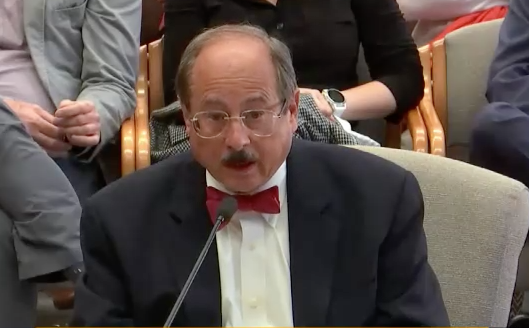
Attorneys representing the Second Amendment Foundation and its allies in a federal lawsuit challenging a ban on communication, advertising and marketing of products and information to young, current and potential shooters, have filed an emergency motion for a writ of mandamus in the case. The motion was filed with the Ninth U.S. Circuit Court of Appeals in San Francisco.
The lawsuit began earlier this year when the groups, with SAF in the lead filed a federal lawsuit seeking Declaratory and Injunctive Relief in a case challenging the constitutionality of a California law prohibiting gun shops, sporting goods stores, and any “firearm industry member” from advertising, marketing or arranging for placement “any firearm-related product in a manner that is designed, intended, or reasonably appears to be attractive to minors.”
It is a First Amendment case known as Junior Sports Magazine, Inc., et al, v. Bonta. Joining SAF in the motion are the California Rifle & Pistol Association, Inc., the CRPA Foundation, Gun Owners of California, California Youth Shooting Sports Foundation, Redlands California Youth Clay Shooting Sports, Inc., and Junior Sports Magazines, Inc. They are represented by attorneys Chuck Michel of Long Beach, Calif., and Don Kilmer of Caldwell, Idaho.
According to this newest motion, “Relief is needed no later than August 26, 2022. If the Court requires more time to consider this petition, however, effective relief could be had if the district court either (1) agrees to hear Petitioners’ motion for preliminary injunction on a day not usually reserved for law and motion, or (2) elects to decide the matter without hearing on the parties’ papers already on file.”
The statute in question—identified as AB 2571 throughout the complaint and signed into law June 30—clearly focuses on any “firearm industry member” in its prohibition, which violates not only the First Amendment, but also the 14th Amendment’s equal protection clause, plaintiffs contend.
“The First Amendment protects commercial speech that promotes legal products and services,” noted SAF founder and Executive Vice President Alan Gottlieb. “You simply cannot single out people engaged in a legal business enterprise and forbid them from advertising or promoting their products just because you don’t like them. That’s what this case is all about.”
Recently, SAF filed for a preliminary injunction in the case. At the time, Gottlieb stated, “It is critical to the success of SAF that its promotional material, publications, and messages about the ‘right to keep and bear arms’ be permitted to reach a broad public audience, including minors and young adults.”
Among SAF’s activities is its support and sponsorship of an initiative called “2A Gaming.” Gottlieb describes this effort as “an outreach program funded by SAF with the goal of growing the Second Amendment Community.” The audience consists of people who play video games, especially games that focus on firearms.
“Part of the purpose of 2A Gaming is to persuade gamers, whose experience with firearms may – at first – be limited to digital experience, to seek out friends and shooting clubs to obtain the necessary training and make that first trip to a range for a live fire experience,” he detailed.
“We hope to educate the younger generation,” Gottlieb added, “on safety and where their gun rights come from; and also seek to shift the political culture in the United States from one that demonizes and fears guns, to an attitude of respect and protection for our nation’s Second Amendment heritage.”
He says the ban on merchandizing codified in AB 2571 would include a ban on SAF-branded t-shirts, hats, other clothing, toys, games, pins, stickers and other material that “promote” a “firearm industry member.”